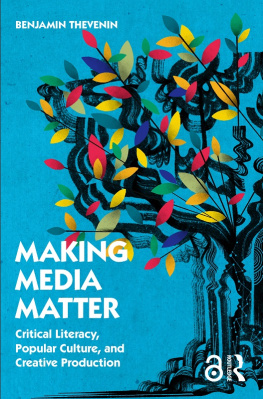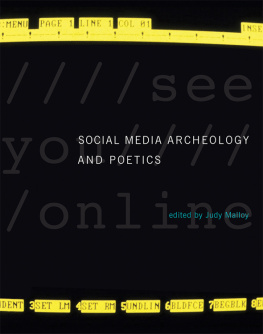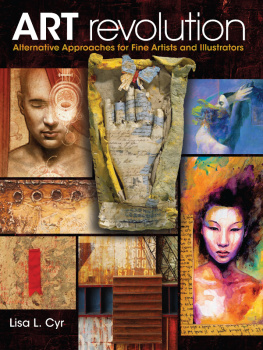remixthecontext is an experimental collection of theoretical fictions composed primarily in dialogue form and consists of an assemblage of voices that resemble the actual conversations between the kinds of artists, intellectuals, scholars, and cultural sophisticates who tend to populate the university caf culture depicted in the book. Each chapter takes place inside a coffee shop and/or on a university campus where a series of freewheeling exchanges playfully investigate a multitude of themes including digital rhetoric, remix culture, copyright, the cult of branding, MOOCs, gender fluidity, and experimental writing practices in a digital arts and humanities context. While each chapter is unique in the subject matter that the interlocutors address, all of the conversations display a rhetorical strategy I deployed in my last book of artist writings titled remixthebook (University of Minnesota, 2011) where I attempted to blur the lines of distinction between metafiction, rhetoric and digital performance as an emergent form of research creation.
Drawing from my own experience as a widely exhibited contemporary artist, an early practitioner of electronic literature, a published postmodern novelist, and founding director of one of the first practice-based art PhD programs in the USA, the cast of characters who appear in the book are fictional constructs whose voices are filtered through the conceptual and satirical sensibilities of an avant-garde artist with a background in media studies, art history, postmodern literature, academic publishing and the creative industries.
The kind of experimental and spontaneous creative writing style you find in this book does not lend itself to traditional footnotes though I have no doubt been influenced by many other experimental books written by artists such as Ronald Sukenicks Narralogues: Truth in Fiction (SUNY Press), Carolee Schneemans Imaging Her Erotics (MIT Press), Maggie Nelsons The Argonauts (Greywolf Press), Raymond Federmans Critifiction (SUNY Press), Mike Kelleys Minor Histories (MIT Press), as well as some of the more personal scholarly books published by new media scholars such as Katherine Hayles Writing Machines (MIT Press), Gregory Ulmers Electronic Monuments (University of Minnesota Press) and Heuretics (Johns Hopkins University Press), and Steven Shaviros Connected (University of Minnesota Press).
One of the implicit arguments being made in remixthecontext is that academic culture needs to pay more attention to the way artistic or aesthetic agency is constantly testing itself in relation to how one uses and remixes theoretical forms to develop a personal digital rhetoric that cannot be dissociated from the information behaviors both artists and scholars have embedded into the practice of everyday life. Although remixthecontext emerges from and is produced as part of traditional scholarly book culture, it is first and foremost a textual performance that turns to repartee and the riposte as key narrative and rhetorical devices to keep the textual momentum flowing. It borrows heavily from the stylistic tendencies of other interdisciplinary artists and innovative thinkers who are actively disseminating their intellectual quips and philosophical witticisms over social media networks and remixes these stylistic tendencies into an alternative form of contemporary scholarship that has more in common with experimental Hrspiel (German radio or ear play) or the argumentative style found in Socratic dialogues than with what we have usually come to expect from a traditional collection of academic essays.
Many of the book chapters have been previously published (almost always in different form) in peer-reviewed academic journals and reviews as well as invited chapters in mainstream scholarly anthologies.
The , was written at the invitation of the editors of The Routledge Companion to Digital Writing and Rhetoric due out in 2018.
, was originally published in a completely different form at the invitation of the editors of Ctrl-Z: New Media Philosophy headquartered at Curtin University in Perth. This extended play remix of the original critifiction published in Ctrl-Z has been included at the end of remixthecontext to indicate to the reader that at this point in the book there is no longer any need to present this collection of writing as anything other than it is: a work of literary art that subsumes both its theoretical and rhetorical elements directly into the narrative fold. Whereas in the previous five chapters it was the student artists who were given their own words in freedom (to borrow a phrase from the Futurists), now its the professors turn to riff on subjects of his own choosing, particularly issues related to desire, Eros, gender fluidity, bachelor machines, and conceptual art. By simply being who he is, an on-the-fly remixologist who randomly samples material from the likes of Duchamp, Judith Butler, and Amelia Jones, Professor Walt Whitman Benjamin cant help but situate his live theoretical performance in relation to a view of himself as someone who invents a new form of rhetoric that [] investigates the potential uses of cross-pollinating practice and theory, writing and making, life and art.







